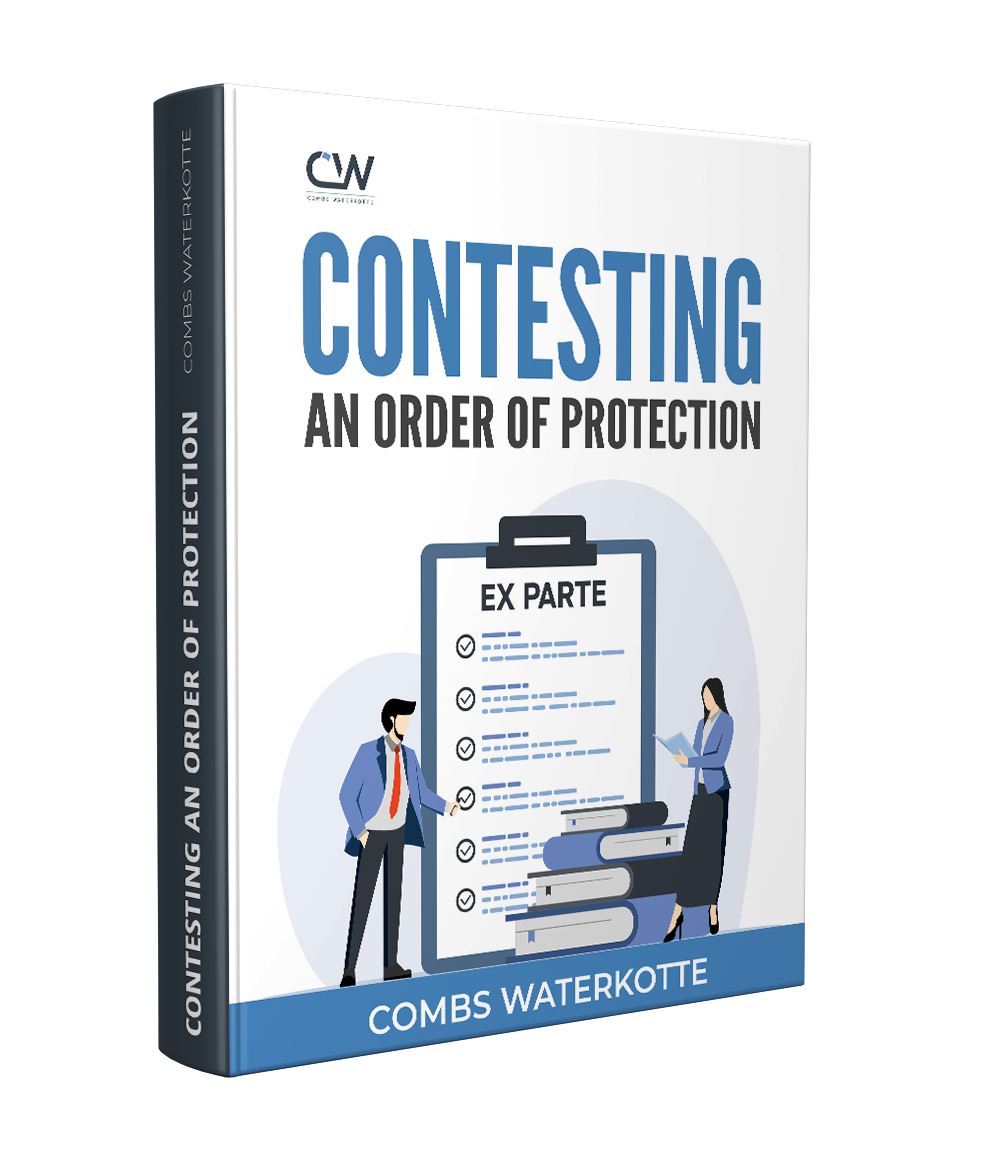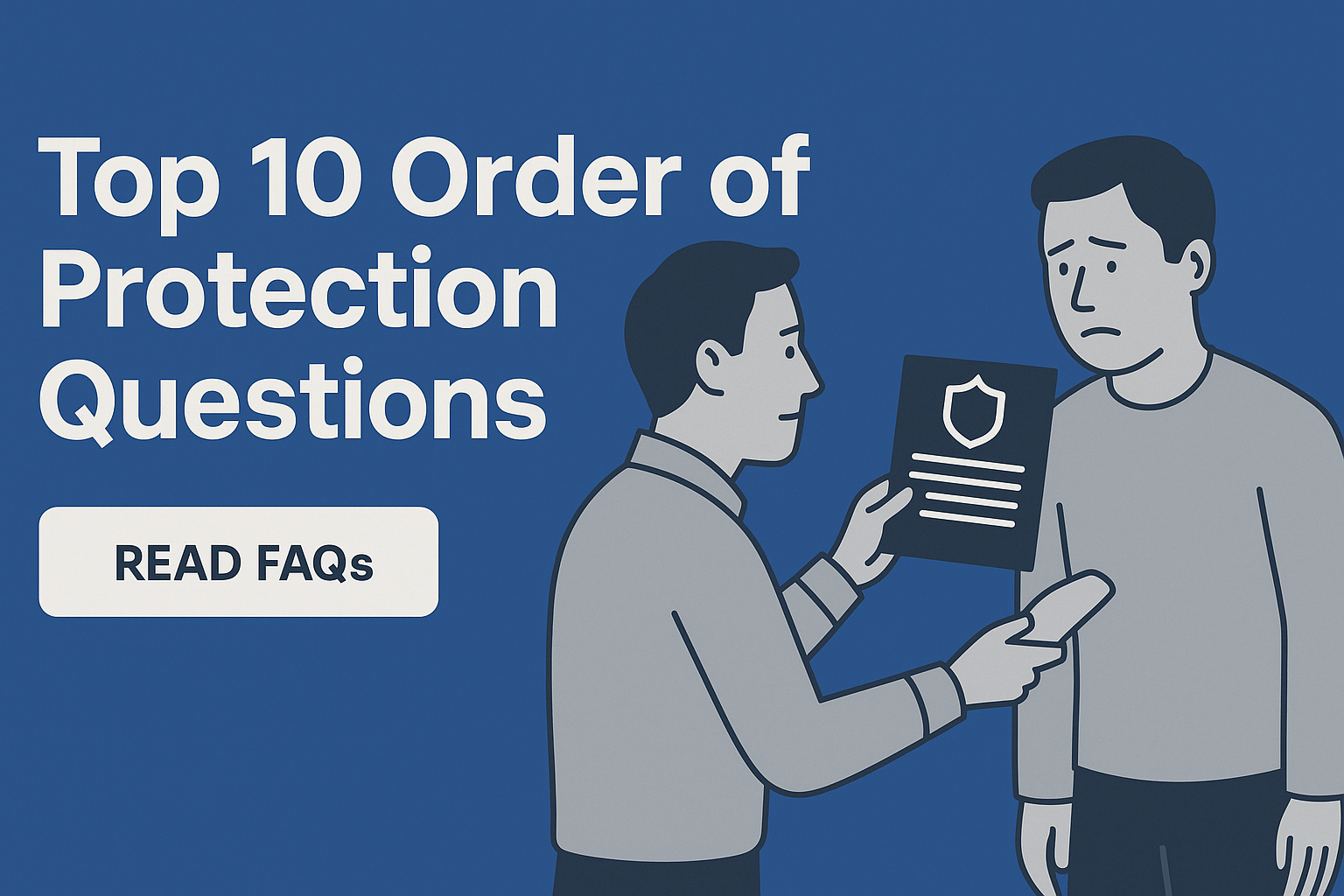Where is the “Burden of Proof” in Order of Protection cases in Missouri? Chris Combs and Steve Waterkotte discuss the burden of proof in Order of Protection cases in Missouri.

Free book
Telling Your Side of the Story: Contesting an Order of Protection
We specialize in defending individuals served with orders of protection in Missouri. We’ve published this ebook to help you understand the process, build a solid defense, and protect your rights.
Steve Waterkotte: But the petitioner has the burden of proof and the burden in these cases [is] by preponderance of the evidence, which in layman’s terms mean more likely than not. 51 percent I believe, 49 percent I don’t. That’s good enough, you met the burden of preponderance of the evidence. If you’re looking at a scale, if it’s tilted slightly in favor –
Scott Michael Dunn: It’s just enough.
Steve Waterkotte: Correct. So whereas in the criminal world, beyond a reasonable doubt, that’s a very high standard. It’s not that in these cases.
So you start with that basic premise, that a petitioner has the burden of proof. And how we challenge these at a hearing is almost always twofold. It’s credibility and veracity.
We are challenging that this petitioner is not credible. In many cases these things turn on text messages, emails, things like that where we can refute their testimony, show them that they’re not credible, and furthermore show that the statements that they’re alleging or saying that our client did are not truthful. And you’ll see a lot of this in this arena.
Sadly, this area of law, it doesn’t take much. You can walk into the courthouse – I always joke about this – I tell folks that I could walk into the courthouse after we are done with this, I can walk in there and say, “My wife hit me on the head with a frying pan last night at dinner.”
And guess what? She will be served with an order of protection. She’ll be ordered to leave the house, because she’ll have a foot restriction, right?
Scott Michael Dunn: Sure.
Steve Waterkotte: And that’ll be temporary, a temporary order, until a hearing is set, which is usually two to three weeks down the road.
And she’s out of the house just like that. I could completely fabricate – and in many of these cases, these are fabricated allegations, for whatever reason. A boyfriend girlfriend dispute, cheating, financial stuff, neighbors that are feuding. You see that commonly.
Scott Michael Dunn: It’s fueled by emotion.
Steve Waterkotte: It is. They do it in the heat of the moment, typically.
A lot of times cops get called on domestic cases and there’s not enough evidence to make an arrest. Cops will routinely tell people, “Go file an order of protection.” It punts it off their radar, sends it to the court, they’re not involved. “Hey, we don’t have enough here to arrest, go file an order of protection.” And it’s wiping their hands clean of it. They put it in the court, let a judge make a decision. They’re not involved in this.
So that’s how these things get triggered in many cases. A lot of times when folks learn of this process, it’s ripe to be abused. I just can go down to the courthouse or the police station and fill out this form. It’s terrible.
I always say to people, I can walk in there and say, “My wife did this last night at dinner. Hit me in the head. Here you go, ma’am.” She’s served. She’s out of the house until that hearing date. It’s scary.
Back to the initial question, we challenge the credibility and we challenge the truthfulness of their statements.
If you need Missouri’s leading order of protection defense team to defend your rights and freedom, speak to one of our attorneys today at (314) 900-HELP or contact us online for a free case review.




